With the introduction of the Co-operatives National Law (CNL), co-operatives registered under the previous legislation (Cooperatives Act 1999) are encouraged to review, update or adopt new rules as appropriate.
- A co-operative can include some or all of the relevant model rules in its own rules. A co-operative can make any additions or changes to the rules as appropriate. If a co-operative prepares its own rules, then it must ensure that they comply with the requirements of the CNL and related regulations.
Decision making
There are four ways in which a co-operative may make a decision:
- Ordinary resolution – a resolution passed by a simple majority of members at a general meeting of the co-operative
- Special resolution – a resolution passed by a two-thirds majority of members. The CNL requires certain decisions to be made by a special resolution.
- Ordinary and special resolution by postal ballot– votes conducted by mail
- Special postal ballot – certain decisions are required to be made by special postal ballot.
| Activities that must be approved by special ballot | Section of the Co-operatives National Law |
|---|---|
| converting a co-operative with share capital to a co-operative without share capital or vice versa | 35 |
| converting a distributing co-operative to a non-distributing co-operative or vice versa | 35 |
| requiring members to take up or subscribe for additional shares and/or deducting amounts for additional shares | 82 |
| requiring members to lend money to the co-operative | 343 |
acquiring or disposing of certain assets | 359 |
setting the maximum permissible level of share interest in a co-operative | 363 |
| making certain share offers | 374 |
| merging a co-operative with another co-operative | 396 and 476 |
| initiating a transfer of engagements | 396 and 476 |
| transferring the incorporation of a co-operative to another scheme | 404 |
| executing a compromise or arrangement between a co-operative and its members | 414 |
| voluntary winding-up the co-operative | 445 |
Under section 250 of the Co-operatives National Law, a co-operative may also request other decisions be decided by a postal ballot.
NOTE: A disclosure statement is required every time there is a special postal ballot.
Section 248 of the Co-operatives National Law details the information that must be included in the disclosure statement, including:
- the financial position of the co-operative
- the interests of the directors in the proposal
- payment of any compensation or consideration to officers or members in relation to the proposal
- any other matters the Registrar directs.
A draft disclosure statement must be submitted to the Registrar. This must be at least 28 days before the notice of the special postal ballot is given to members.
Pre-approval for rule changes
There are certain classes of rules that cannot be changed by the co-operative without prior approval of the Registrar. This applies to provisions in a co-operative’s rules relating to:
- active membership
- converting a non-distributing co-operative to a distributing co-operative
- the co-operative’s primary activities
- winding-up
- the issue or sale of shares or co-operative capital units.
Co-operatives should complete the Application for prior approval of rule amendment/s (PDF, 282.1 KB). List the rule amendments, deletions and/or additions that require pre-approval. Submit this form to the Registrar before the resolution amending the rules is passed by the co-operative.
Some rule changes do not need pre-approval. In this situation, hold a special resolution and submit an application to the Registrar.
Notice to members
Co-operative members must be given a minimum of 21 days' notice to consider the proposed amendment. The notice to members must state:
- the intention to propose the special resolution to amend the rules
- the reasons for proposing the change
- the effect it will have if the special resolution is passed.
If a co-operative proposes amending its active membership provision, the notice to members must also state:
- whether the member is eligible to vote on the resolution
- the full text of the proposed resolution
- a copy of section 156 of the CNL, about the cancellation of membership of an inactive member.
When a resolution is passed, a co-operative has 28 days to complete and lodge the Application for registration/approval of rule amendment/s (PDF, 291.6 KB).
After you lodge an application
An amendment to the rules does not have any effect until it is registered. Once your application has been registered Consumer, Building and Occupational Services will:
- notify you of the approved changes or
- ask you to consider a different change or
- refuse to approve the change.
Once the changes have been approved, arrange the special resolution according to your co-operative's rules. Within 28 days of the resolution being passed, you must submit:
- an Application for registration/approval of rule amendment/s (PDF, 291.6 KB)
- a copy of the signed special resolution
- a complete copy of the rules, with the changes included.
Consumer, Building and Occupational Services will advise the co-operative of the outcome of the application.
This page has been produced and published by the Consumer Building and Occupational Services Division of the Department of Justice. Although every care has been taken in production, no responsibility is accepted for the accuracy, completeness, or relevance to the user's purpose of the information. Those using it for whatever purpose are advised to verify it with the relevant government department, local government body or other source and to obtain any appropriate professional advice. The Crown, its officers, employees and agents do not accept liability however arising, including liability for negligence, for any loss resulting from the use of or reliance upon the information and/or reliance on its availability at any time.

